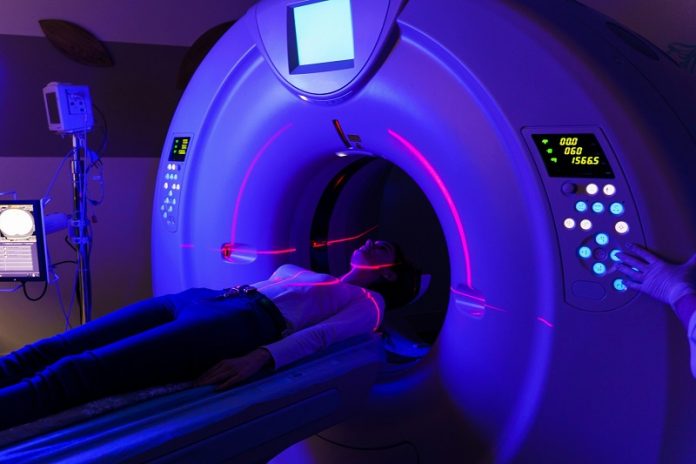
A new long-term study has found that radiotherapy after surgery can help prevent breast cancer from coming back in the same area for up to 10 years.
This important discovery shows the lasting benefits of radiotherapy, though the protective effect begins to fade after a decade, making the risk of cancer recurrence similar to that in patients who did not receive radiotherapy.
The study, conducted by the University of Edinburgh and published in The Lancet Oncology, offers valuable insights into the long-term impact of radiotherapy following breast cancer surgery.
Radiotherapy is a standard treatment for women with early-stage breast cancer, typically given after surgery to target and destroy any remaining cancer cells in the breast.
The research, known as the Scottish Breast Conservation Trial, followed 585 women in Scotland who had early-stage breast cancer.
Half of the women received radiotherapy after surgery, while the other half did not. The average follow-up period was 18 years, with some women being followed for more than 30 years.
The results showed that after 10 years, 16% of the women who received radiotherapy experienced a return of their cancer in the same location, compared to 36% of those who did not receive the treatment.
This significant reduction in cancer recurrence highlights the effectiveness of radiotherapy in preventing the return of breast cancer within the first decade after treatment.
However, despite this reduction in recurrence, the study found that overall survival rates did not improve with radiotherapy.
After 30 years, the average survival time was 19.2 years for those who had radiotherapy, compared to 18.7 years for those who did not.
This suggests that while radiotherapy is effective in preventing cancer from coming back in the short term, it does not necessarily increase long-term survival.
Interestingly, the study also found that while fewer women who received radiotherapy died from breast cancer (37% versus 46%), more women in this group died from other cancers (20% versus 11%).
This finding indicates the need for further research into the long-term effects of radiotherapy, particularly as more patients are living longer due to improvements in the detection and treatment of early-stage breast cancer.
Dr. Linda Williams, the lead author from the University of Edinburgh’s Usher Institute, emphasized the importance of long-term studies like this one.
“This 30-year study marks the longest follow-up of postoperative radiotherapy in the treatment of early-stage breast cancer. Long-term studies, which go beyond 10 years of follow-up, are crucial to fully assess the risks and benefits of treatments,” she said.
Professor Ian Kunkler, also from the University of Edinburgh, added, “Our evidence suggests that radiotherapy protects against cancer returning in the same breast for up to 10 years.
It supports the continued use of radiotherapy after breast-conserving surgery for most patients with early breast cancer. Like other anti-cancer treatments, radiotherapy loses its beneficial effects in the long term.”
This study provides a clearer understanding of the long-term benefits and limitations of radiotherapy in breast cancer treatment, helping patients and doctors make more informed decisions about their care.
If you care about cancer, please read studies about how to fight cancer with these anti-cancer superfoods, and a berry that can prevent cancer, diabetes and obesity.
For more health information, please see recent studies about how to harness the power of anti-cancer foods and supplements, and cancer-fighting foods and recipes.



